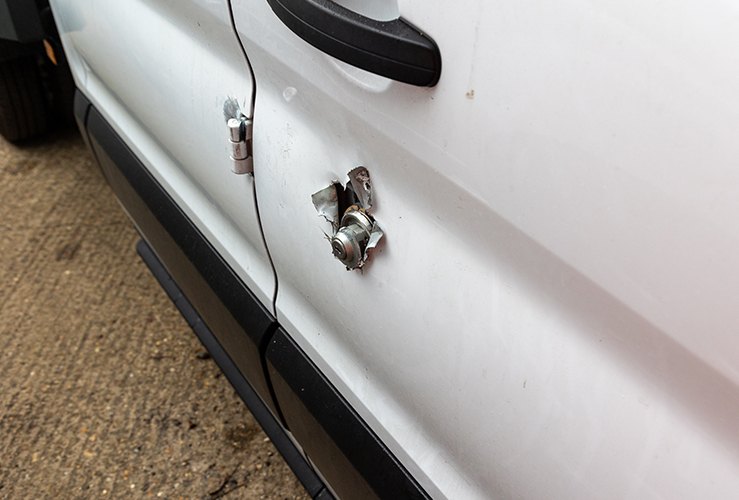Motor insurance is mandatory for any vehicle used on UK public roads. If you're caught without valid cover, you could be fined or even lose your licence.
Whether the vehicle you're in is owned, hired, or borrowed, it must have sufficient insurance to cover potential injuries to other people, or damage to their property (including, of course, their vehicles) - where you are deemed to be ‘at fault’.
There are three cover levels available to UK drivers:
- Comprehensive
- Third Party Fire and Theft
- Third Party
In this article, we'll carry out a car insurance comparison between Third Party and Comprehensive cover.
Comprehensive car insurance
Comprehensive car insurance, as the name suggests, covers you, your passengers, and occupants of third-party vehicles, against injury/death. It also covers your own vehicle against damage, and those of third parties. Additionally, it covers other damage you cause in your vehicle, such as hitting someone else’s fence.
Your own Comprehensive cover would only come into effect where you were at fault. If the ‘third party’ is deemed to be at fault, then their insurance would provide coverage.
Note that Comprehensive car insurance policies do vary, but all will protect against:
- Damage to your own vehicle
- Damage to third party vehicles
- Fire
- Theft
- Accidental damage to your vehicle
- Injury (to you or third parties)
A comprehensive policy may also cover:
- Personal possessions
- Driving other cars (hired or borrowed)
- Windscreen damage
Other available add-ons might include:
- Breakdown cover
- Motor legal protection
- A courtesy car
Third Party
Third Party car insurance offers the minimum level of cover. It covers any costs arising from injuries to other people (a 'third party') caused by you and your vehicle, as well as damage to their vehicle (and any other third-party property damage).
The key thing to know about Third Party car insurance is that it does not cover damage to your own vehicle, or any costs arising from injuries to you or your passengers.
However, if you have a collision and the other party is deemed 'at fault', their insurance (whether Third Party, Third Party, Fire and Theft, or Comprehensive) would cover injuries to you or damage to your vehicle/property. Third Party would also cover you if, for example, you crashed into a neighbour's wall or parked car.
Is comprehensive cover better than third party?
Comprehensive car insurance can offer substantially more protection than third party insurance. Comprehensive cover may also cover you in the event that insurers cannot determine who was at fault, although this depends on the specific policy.
Some insurance providers do not offer Third Party cover.
What does Third Party, Fire and Theft cover?
Now we've compared the highest level of cover (Comprehensive) with the lowest (Third Party), let's look at the mid-level coverage: Third Party, Fire and Theft (TPFT).
TPFT provides coverage for injuries to other road users and damage to their property (where you are deemed 'at fault'). It also covers loss or damage to your own vehicle as caused by fire or theft.
However, TPFT will not protect you against costs arising from injury to yourself or your passengers, or damage/loss of your vehicle/possessions.
Again, if an accident is deemed to be someone else's fault, their insurance will cover your injuries or loss/damage to your own vehicle or possessions.
Which is the cheapest level of insurance?
While Third Party insurance offers a much lower level of cover than Comprehensive cover, in some cases it may actually be more expensive. This is because drivers who take out Third Party cover are statistically more likely to be involved in a collision.
Traditionally, however, Third Party was the cheapest insurance level.

What happens if an 'at fault' vehicle has no insurance?
Uninsured and untraceable drivers in the UK cause an average of 130 deaths and 26,000 injuries each year. This equates to a fifth of all road traffic accidents.
However, there are some protections for those who are victims of uninsured drivers: the UK's vehicle insurers pay into a fund administered by the Motor Insurers’ Bureau. In 2019, they paid out some £322m in compensation to people who were injured or had their property damaged by uninsured, untraced drivers.
Shop around
Whichever level of cover you choose, it's important to shop around for the best deals.
Premiums can vary between providers, although this can be influenced by either more or fewer benefits or perks. For example, a more costly Comprehensive policy might include things like a courtesy car or breakdown cover. Think about what you really need to feel protected on the road.
And while cost will of course be important, it's essential you have sufficient cover to protect yourself and others.
Car insurance comparison sites can be a useful way of sorting through the available options. However, not all insurers are listed on comparison sites. With this in mind, it may be worth casting your net beyond such portals.



